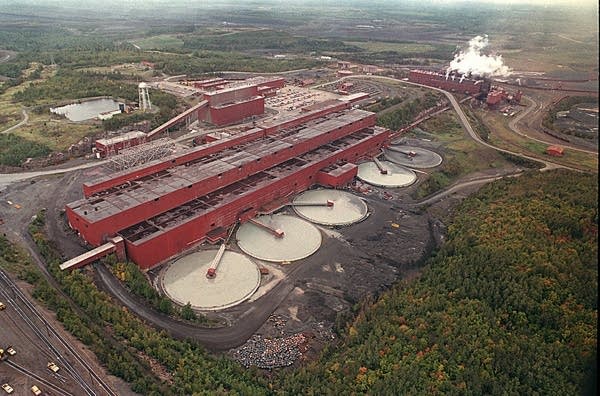Court denies request for additional environmental review of PolyMet mine

Go Deeper.
Create an account or log in to save stories.
Like this?
Thanks for liking this story! We have added it to a list of your favorite stories.
The Minnesota Court of Appeals has rejected arguments from three conservation groups that claim state regulators should conduct additional environmental review of the PolyMet copper-nickel mine proposed for northeastern Minnesota.
The groups — the Minnesota Center for Environmental Advocacy, Friends of the Boundary Waters Wilderness and WaterLegacy — alleged in appeals filed last summer that PolyMet intends to build a much larger mine than what was originally proposed to the state, and argued that therefore the Minnesota Department of Natural Resources should conduct a supplemental analysis to weigh additional environmental risks from a larger project.
But in a unanimous ruling released Monday by a three-judge panel, the Minnesota Court of Appeals disagreed, writing that any possible mine expansion was "speculative," because PolyMet hasn't filed expanded plans with the state, and therefore didn't require the DNR to complete the supplemental environmental impact statement that the environmental groups demanded.
The DNR signed off on the final environmental impact statement for PolyMet in early 2016, a required regulatory step that laid the groundwork for the many state and federal permits the company has since received to move forward with its proposal. The document, more than 3,000 pages long, analyzes the environmental impacts of the project and how the company plans to mitigate those impacts.
Turn Up Your Support
MPR News helps you turn down the noise and build shared understanding. Turn up your support for this public resource and keep trusted journalism accessible to all.
Now, the final hurdle PolyMet faces is to raise the $1 billion it needs to build the mine. The company recently announced a major stock offering intended to clear its balance sheet by paying off debt to Glencore, a Swiss commodities giant that is the company's largest financial backer.
Environmental groups have filed a number of different lawsuits seeking to block PolyMet from moving forward, but this is the first formal opinion that's been issued in those cases. The groups say they are weighing whether to appeal the decision to the Minnesota Supreme Court.
A key issue in this case is a technical report that Toronto-based PolyMet submitted to Canadian regulators last year, in which PolyMet indicated it could earn a substantially higher rate of return by building a much bigger mine at the site, located just outside Babbitt on the edge of the Iron Range.
The Minnesota DNR analyzed a mine project that proposes to process 32,000 tons of ore per day. But the Canadian report lays out a possible 118,000-ton-per-day operation, which could substantially increase profits for the company.
Environmental groups accused PolyMet of a "bait and switch," in which it would get approval for a smaller mine, but then quickly move to build a larger operation.
But the Court of Appeals panel deferred to the DNR, which determined that the discussion of mine expansions in the technical report did not require additional review, since "expansion remains speculative" and the DNR "had received no formal notification of a project change."
State officials have said that any proposed expansion would require a new environmental review and permitting and public comment process before it could move forward.
But environmental groups argue that now is the best time to study the potential impacts of a larger mine.
"All evidence points to the fact that they fully intend to expand the mine after they begin operations," said Chris Knopf, executive director of Friends of the Boundary Waters Wilderness. "When they do, the political pressure to approve the expansion will be so great that it will be impossible to do any meaningful environmental study on its impact."
Elise Larson, a staff attorney for the Minnesota Center for Environmental Advocacy, argued that PolyMet is misleading Minnesotans.
"The current environmental impact statement reflects a project that is only 30 percent of the size of the mine that PolyMet has touted to their investors," she said. "DNR's obligation is to investigate the real proposal."
But the DNR argued it doesn't have the authority to require a certain financial rate of return before it approves a project. That's up to the company, it told the court.
"The DNR's only responsibility in this regard is to ensure that the financial assurance requirements of the mining statutes and regulations are met," the appeals court panel said in its opinion.
PolyMet is bidding to open the state's first copper-nickel mine near Babbitt and Hoyt Lakes, on the far eastern edge of Minnesota's Iron Range. Local backers say the project would create 360 direct jobs, potentially hundreds more spin-off jobs, and inject tens of millions of dollars into the regional economy.
"In addition to long-term employment for skilled tradespeople," the project would "cultivate a more diverse and thriving regional and statewide economy, and create access to essential metals to power the green economy and our modern world," said Nancy Norr, director of Jobs for Minnesotans, a labor and business group that supports PolyMet.
Company CEO Jon Cherry said the court's decision reaffirms the lengthiest environmental review in the state's history, and "appropriately addresses the scope of our plan to responsibly mine copper, nickel and precious metals from the world-class Duluth Complex in northeastern Minnesota."
Environmental groups are weighing whether to appeal the decision to the Minnesota Supreme Court. They also have several other ongoing lawsuits in state and federal court that could potentially block the project.
Dear reader,
The trustworthy and factual news you find here at MPR News relies on the generosity of readers like you.
Your donation ensures that our journalism remains available to all, connecting communities and facilitating better conversations for everyone.
Will you make a gift today to help keep this trusted new source accessible to all?




